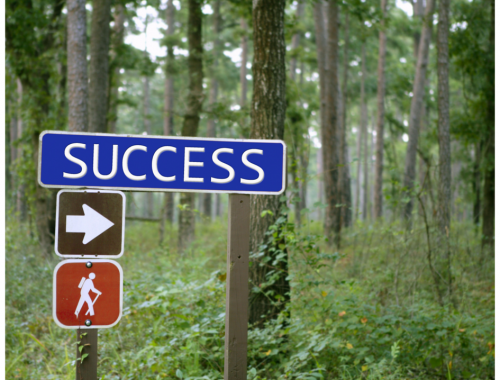Managing your finances from the start of your career gives you big advantages as your life moves forward, but you can only do what you know to do. When you get that first job, or the next big job, you’ll be presented with an array of choices. Most people tend to feel doing nothing is the safe choice. When it comes to financial planning, it’s the most foolish choice open to you. Even economics and business grads will have had no personal finance education. There are ton of great books on the subject for more depth, but if you’re already confused, you hardly want to select or read an entire book on the subject. The language of capitalism is money, so you need to be financially literate to get what you need and want in our society.
While we await specific team news of the Blizzard Overwatch League in our house, the basics of the player contracts have been public for a couple of months, so I thought using those would make for an interesting post for everyone, and specifically relevant for readers of Jake’s blog. The common wisdom is that all careers carry this kind of uncertainty, but esports talent has the added burden of knowing they must plan for a second career during the first career. As with any professional sport, the players skew young, injuries can end a career with little notice, but unlike some established professional sports, the pay isn’t so huge that it can be invested in such a way to provide an income for post-career life. Having run a small business whose customers are large businesses for over 20 years, I’ve lived through several business cycles, so I can tell you that almost everyone would be better off if they managed their money wisely right from the get-go. Despite that, there’s really no process in the US educational system to make sure everyone is educated in this critical area.
Here’s what we know about the OWL players’ new jobs for our sample scenario:
Salary Minimum: $50,000
Bonuses: If they win the season, potentially as much as $83,000
Health Insurance: Provided, no details
Retirement Plan: Provided, no details
Housing: Provided (for the season), no details
As every working adult will tell you, $50,000 a year with no housing expense is a ton of money. As large as that sum seems, any salary can get eaten up fast if you start shopping for Yezzys and Teslas instead of managing your finances wisely. (The first rule of personal finance is that just because a company will make the loan or lease to sell to you doesn’t mean you can afford it. Caveat emptor.) What should the newly employed do? There’s no way to make this really short and still provide the relevant education, so I bolded the topics so you can skip any that don’t apply.
- Contribute at least enough to the retirement plan to get the maximum employer match. This immediately doubles your money, even if you don’t invest, so that’s a 100% return on your retirement savings, tax-free (you pay the taxes when you withdraw the money in retirement).
- Make no unnecessary financial commitments until you get your first paycheck and see what your take-home (net) pay is. You can also find online calculators for this if you must sign an apartment lease and/or buy a car to start your new job. That $50,000 OWL salary puts players in an 8% tax bracket for California, and the net paycheck on that calculator for a single person (without retirement or health insurance deducted), ends up being about $36,000. So $4,200/month ends up being $3,000/month, which is a big difference in figuring out what you can afford.
- Make a budget of your monthly expenses. (Student loan payments—even if they haven’t started yet, car insurance, renter’s insurance, cell phone bill, minimum credit card payments on any balances, estimated food, clothing, transportation, and other living expenses.) When you see what is left, figure out how much you can afford to spend on rent and a car, if needed. You need to quantify your finances to be able to manage your finances.
- Start building an emergency savings fund, if at all possible. One of our sons is in grad school, with a salary funded by research grants, and those grad students stipends are pretty small no matter where you go to school. Even so, if you have an extra roommate, share a bedroom, work Saturdays at a second job, it’s always possible to save something, even if it’s just $25 a month at the outset. I know that seems like the dollar amounts can’t be big enough to matter, but starting now and having that savings account will embed the habit for when you do have more income. You’ll think of yourself as a responsible saver, see yourself making progress, and that’s as important as the actual cash. Include this number in your budget, if possible (the general rule is best expressed as “pay yourself first”). There are a lot of arguments about how much you should save in an emergency fund. If you are in OWL, I’d recommend you save enough to start the next stage of your life. Think about where you would go when you retire (are retired) from OWL. See how much rent is in the city, and have enough money saved up to cover four months of rent and food. Moving into an apartment can require first and last month’s rent as well as a security deposit, so the initial hit can be three times the actual rent. Even if you can and would move back home or you expect that your job is secure, you might have to buy a car as a result of a transfer within the company, a more serious business wardrobe, a new laptop or phone, or cover an insurance deductible (see no. 7 below), so I’d say a goal of an emergency fund of $2,000–$5,000, depending on what you can manage, saved over the first two years of your career is a good goal.
- Rank your debts by interest rate, and make the biggest payments to the highest interest rate. Retire as many of them as possible as fast as possible. Realistically, most new grads aren’t going to do much here, but the OWL players don’t have rent, so every single one of them should be debt-free, except for student loans, by the end of year one. (And those contracts are only for one year, so it’s important to accomplish this on a one year timeframe.)
- If there are any small little debts, get rid of those, even if the rates aren’t the very highest. That will make you feel like you are making progress, and the progress will keep you motivated.
- Buy renter’s insurance, even if your name isn’t on the lease. Your parent’s homeowner’s insurance can cover your offsite property only when you live in the dorms in college. As always with insurance, have as large a deductible as you can afford to hold down the premium costs. If you lose everything, how much of a loss can you take? Insurance is meant to be a backstop in case of a big loss, not dole out $300 for a fender bender. (And the insurance company will raise your rates if you’re making small claims anyway, so you really only want to make a claim for large losses.) Once you have a solid emergency fund, you can lower your monthly expense by raising your deductible to $500 or even $1,000.
- Most companies offer several health insurance options. These are basically Health Maintenance Organizations (HMOs), Preferred Provider Organizations (PPOs), or PPOs that are HSA-compliant (Health Savings Accounts). An HMO has low co-pays but restricts your doctor choices and almost everything requires you see a general doctor to get a referral to a limited set of specialists. These are good if you are on a limited budget, basically healthy, and can handle the gatekeeper process. PPOs contract with a wider group of independent medical organizations which gives you more options (great if you are or become seriously sick or injured and want to see a specific specialist) but they have a deductible. Until you meet the deductible, they basically are working as a discount card. (It’s a gigantic discount, typically at least 50%, which is why you must have health insurance at all times. Medical bills are the number one cause of American bankruptcies.) PPOs under the ACA cover preventative treatment in full (flu shots, standard checkups, etc.). HSAs are PPOs with very large deductibles. Some companies make contributions to the HSA for you, and all permit you to make contributions. Much like retirement accounts, the contributions are tax-deductible, but you can take your money out without taxes or penalties to pay for medical expenses, whether next month or 10 years from now. If you have a large income and are relatively healthy, these are a great savings device. You’re betting that you won’t have significant medical bills before you have saved up several years’ worth of deductibles. If you’re in OWL and debt-free and they provide this option, this could be a perfect choice—provided you are disciplined enough to fund the HSA. If you’re in OWL and have student or other loans, stick with the regular PPO. OWL athletes: Stay away from the HMO option—you’ve got carpal tunnel risks that are very high and, if you are injured, you’ll want to go to a top-notch specialist directly. As season one is in Los Angeles for everyone, if there are multiple PPO options, look for one that covers UCLA Health—it’s always a safe bet that there’s an expert at a major university medical center like that who will be tops in any field. If your company asks you to pay a significant portion of your premium, and your parents can put you on their policy, compare costs and the network—it may be a better short-term solution.
- Have a credit card for personal expenses, but also a credit card you use only for side hustle expenses—presumably the team/your company will cover some of these, but those not reimbursed can reduce your taxable income (if salaried, you can deduct them only to the extent they exceed 2% of your total income). OWL players are likely to have outside streaming revenue as well, reported as sole proprietorship businesses on Schedule C of their income tax, which removes the 2% threshold. (The tax code loves side hustle income—almost all of which require a computer, a phone, and maybe some auto or travel expenses.) If that outside, non-salary income is significant, then it may be time to consider creating a more formal business entity (that’s a whole other post). Any time you have a jump in income, call your existing credit card company and ask them to raise your limit. (Only do this if you are disciplined enough to stay out of trouble and pay the balance in full each month. Credit card companies are predators, not your friends; they would love you to be in debt for a few thousand dollars, paying 20%+ interest for years.) Keep the receipts for things you buy that you think are legitimate tax deductions—a credit card bill alone is not enough in the event of an audit.
- At a $50K+ income level, you may need help doing your taxes, so consider getting a CPA. At least ask around and get a reference for someone you can hire, if your team does earn significant bonus money or when you get a big promotion. The time to work with a CPA is ahead of time so you can make the best financial and tax decisions for the year, not just pay them to fill in tax forms.
- Consider hiring a financial planner on an hourly basis to make a plan for you. If you have no debts and no rent to pay, you can save a lot of money right now, and it would be smart to have someone create a plan for you on an hourly-fee basis. This last part is important. Financial planners work on several different business models, including commissions, a percentage of assets under management, and hourly fees. The hourly rates will be very high, but this is the best deal early in your career. Commissions can lead to you being sold things that aren’t in your best interest. You don’t have a lot of assets to invest (yet), and so your investment choices should be simple, low-cost index funds. There’s no sense in paying a percentage on top of those fees to manage your money. Hourly rates for a plan you can execute for the next several years is the most you would need, and likely just for unique career circumstances like OWL—some of these players will need to finish their educations or retrain for their next careers, or at least prepare for downtime between teams, so they have some specialized planning considerations.
- Pretend the bonus isn’t going to happen. It may not and the numbers can change. That OWL bonus estimate assumes only six players per team, almost certainly wrong), and that they win first place, which will be true for only one of the twelve teams. Your boss may change their mind, the economy may turn, you may not stay until the end of the year. Don’t count on anything like a bonus in your financial planning. If it does come through, retire debt, max out your savings, and consider investing the rest in low cost index funds. Then treat yourself to a reward. (BTW: Happiness research says an experience will make you happier than an object.)
This all boils down to simple guiding principles: Have savings, don’t have debt (unless it’s for something you can sell to pay off the debt in full), and hedge your risks. Each area goes winding off into its own vocabulary and there are legitimate personal considerations that make it hard to have just one right answer that works for everyone, but spending a little time now to become financially literate will reduce your stress and maximize your options your entire professional life.





No Comments